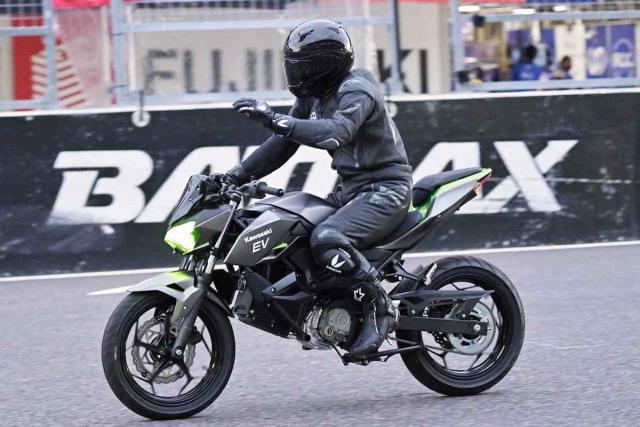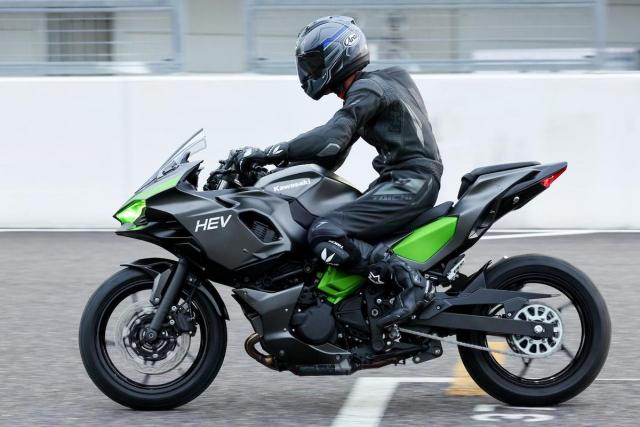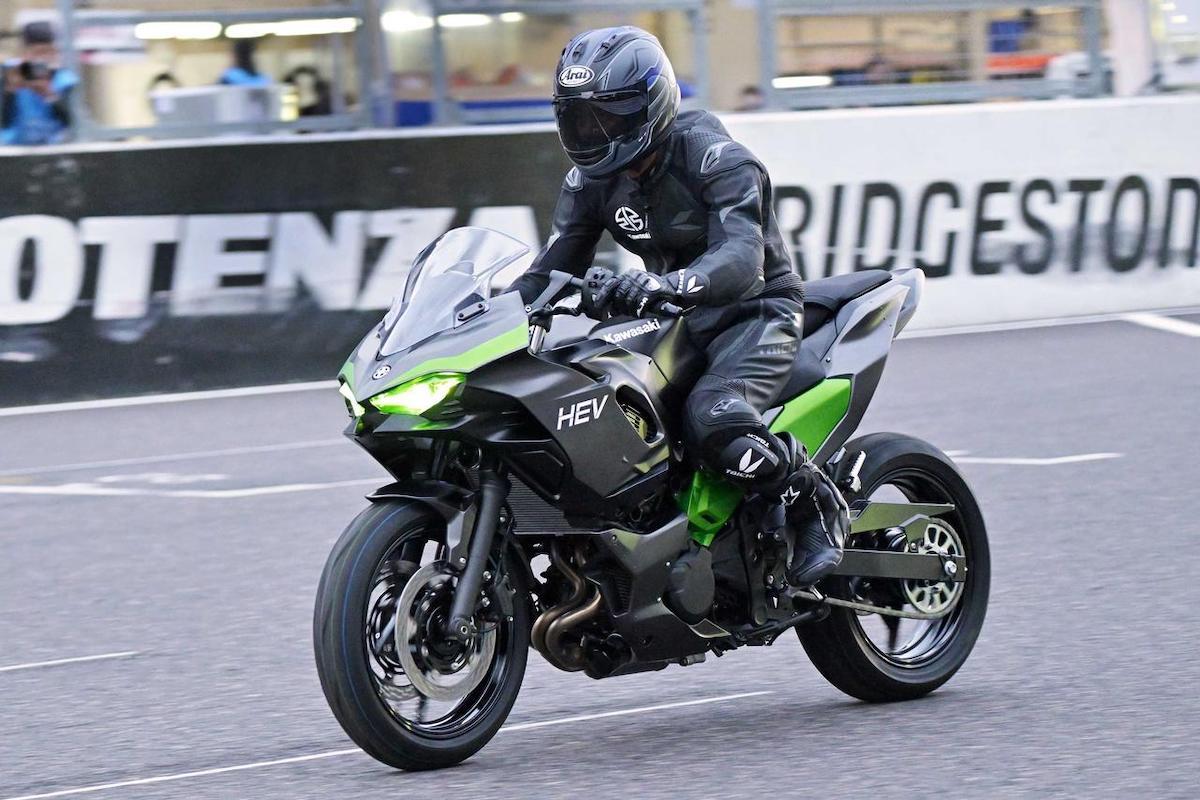Advanced prototypes of the first electric-powered Kawasaki model and another equipped with a hybrid powertrain made their first public surprise over the weekend with a brief, low-key demonstration at the Suzuka 8 Hours.
Two of Kawasaki's most anticipated new motorcycles are set to arrive over the next 12 months, as the brand has provided dribs and drabs of information on long-term plans to electrify its lineup.
However, after the recent release of homologation documentation, appearing to confirm a new 2023 model using an electric powertrain and positioned in the segment equivalent to 125cc and 300cc models, a motorcycle fitting this description rolled at Suzuka, the Japanese publication Autoby having been able to take photos and videos.

Taking part in a demonstration on the straight in front of the grandstand ahead of Sunday's Suzuka 8 Hour race – which saw reigning champions Kawasaki finish second behind Honda – the bike most closely resembles the Z250 in size and detail. While it's hard to say exactly how far along the development is in terms of the final look, it's fair to say that while Kawasaki has obviously worked hard on the fairing, the battery technology that lies underneath isn't immediately obvious to note.
A closer look reveals more rudimentary mechanisms that, presumably, will be linked or hidden, but given that most electric models on the road at the moment make it very clear what powers it, Kawasaki has clearly done its homework. If this is indeed linked to the model that appeared in these official documents, the still unnamed motorcycle will develop 11 kW, therefore around 14 hp.
Also on display at Suzuka is the latest version of Kawasaki's hybrid sports bike, which the firm has been working on for a few years now. While hybrid technology – which includes a battery as well as an internal combustion engine – has taken off in the four-wheel industry, few have attempted to adapt it to motorcycles.

Indeed, given that motorcycles are built around the main component which is the engine, installing a battery also creates a headache in terms of sizing. As a result, the size of the heat engine must be reduced, but the weight would increase, which generates numerous side effects in terms of stability and ease of driving. Add to that the fact that motorcycles are generally frugal compared to their four-wheeled counterparts and the argument for a two-wheeled hybrid falls pretty flat.
Nonetheless, Kawasaki seems determined to find a solution and a look at the 'HEV' is promising. Indeed, while the model was last seen without a fairing, Kawasaki has created a beautiful design around it that combines the sensibilities of a Ninja 400/650 with the loud "Sugomi" influences of the H2.
Noticeably, the HEV has a very wide, sculpted front section to indicate that this is where Kawasaki found room to insert these battery cells. While we can't say what it will look like on the road with the extra weight up front, the design seems well integrated.
From the side, a longer wheelbase is noticeable, probably to counter the heavier front end, while a closer look at some of the finishing touches – such as the mirrors and the visible lock for the under-seat compartment – would suggest that This is a machine ready to go into production.
However, perhaps the most interesting part of this story is the short video that Autoby managed to obtain of the two Kawasaki motorcycles accelerating down the straight. While the sound of the electric motorcycle is nothing new, turn up the volume when the HEV arrives and listen for the moment as it changes from electric hum to combustion engine rumble.
Zとニンジャ??#鈴鹿8耐 pic.twitter.com/hxVvVkRoke
— webオートバイ (@webautoby) August 6
As a growing number of major cities look to reduce the number of thermal cars and motorcycles in their centers, Kawasaki estimated that this would become universal over the coming years. At a time when electric models that can be used viably over long distances or in areas where charging is difficult are rare, a motorcycle that respects green zones in the city but can still be used further afield could be incredibly smart and timely.
Regardless, there is no denying that Kawasaki is ready to showcase its electric vehicles and we can expect to see them in the coming months, most likely at EICMA where the company first presented its plans of electric vehicles in 2019.



